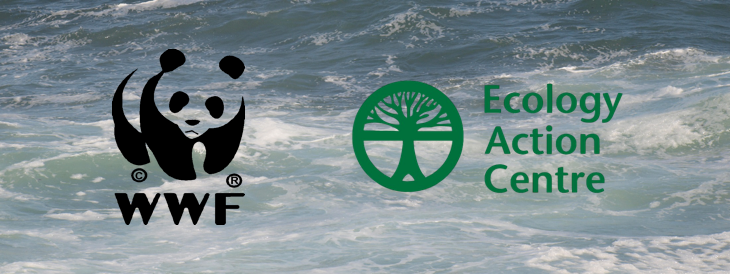In an article in the 9th May 2018 issue of Nature, Olive Heffernan explores issues about the protection of unregulated high seas ecosystems in advance of the United Nations treaty negotiation meetings in New York in September. With the possibility of a United Nations Convention on the Law of the Sea (UNCLOS) add-on treaty laying […]
Marine & Ocean Issues
EIUI Co-Sponsors Panel on the Concept of Stock Assessment and Fisheries Management Decisions
On 8-9 March 2018, the Environmental Information: Use and Influence research program co-sponsored a visit by Dr. Jennifer Telesca (Pratt Institute, Brooklyn, New York) to Dalhousie University and the University of King’s College. At the panel, Dr. Telesca led off with a presentation that drew on her paper “Accounting for Loss in Fish Stocks: A […]
EIUI Team Members Publish a Paper on Key Characteristics of a Communication Network in Marine Resource Development
Public policy decisions are frequently made within complex interconnecting networks of many stakeholders. Decisions about environmental problems, for example, often involve an extensive array of different participants. In an effort to influence policy decisions, these individuals, groups, and organizations participate in networks to gain an understanding of the issues and to ensure their (sometimes competing) […]
EIUI Researcher Conducts Study about the International Aquatic Sciences and Fisheries Abstracts
Is your institution a subscriber to the Aquatic Sciences and Fisheries Abstracts (ASFA)? If so, you can assist with an evaluation of this major international information resource. Since 1971 the ASFA database has been providing access to information about the science, technology, and management of marine, brackishwater, and freshwater environments globally. Operating as an international […]
Science, Information, and Policy Interface for Effective Coastal and Ocean Management Now Available in Paperback
Science, Information, and Policy Interface for Effective Coastal and Ocean Management is now available in paperback. Published by CRC Press (Taylor & Francis), this book is the first to focus exclusively on the role of scientific information in the development of coastal and ocean policy and management of the oceans. “Researchers looking for inspiration will […]
EIUI Team Member Cited in Scientific American
In the February 2018 issue of Scientific American, Olive Heffernan critically examines the growth of large marine reserves across the world, the influence of biodiversity targets on this conservation process, and the importance of science in marine planning. Among the scientists profiled in this article is EIUI team member, Elizabeth De Santo, drawing on her research […]
“Holding our feet to the fire”: How eNGOs use information and relationships to advance marine conservation

Today, thousands of non-governmental organizations (NGOs), large and small, are found in decision making settings globally. Why are they active in these contexts? Do they fulfill particular roles? Do they affect how information is shaped and used by decision makers? Do they succeed in influencing policy development? Although NGOs have existed for many years, to […]
One for the Whales: The Biennial Society for Marine Mammalogy Conference in Halifax, Nova Scotia

A first for Canada’s “Ocean City,” the Society for Marine Mammalogy (SMM) held its 22nd Biennial Conference on the Biology of Marine Mammals at the World Trade and Convention Centre (WTCC) in downtown Halifax. Across from the Grand Parade square at City Hall, the conference packed the WTCC and the adjacent ScotiaBank Centre with all […]
“Get Your Research off the Shelf and Into Policy”: EIUI Featured in MEAM Newsletter
The Environmental Information: Use and Influence research program is featured in the latest issue of Marine Ecosystems and Management (MEAM) in an article titled “Get Your Research off the Shelf and Into Policy: Writing Reports and Briefs that Influence Decision Making.” Written in the form of an interview, this brief article outlines the research agenda […]
Who Uses the Results of Long-Term Environmental Monitoring Programs? A New Study by EIUI Team Members
For over 25 years the Gulfwatch Contaminants Monitoring Program of the Gulf of Maine Council on the Marine Environment has annually measured chemical contaminants in the Gulf of Maine, including the Bay of Fundy using the internationally employed Mussel Watch methodology. Designed to “provide environmental and resource managers with information to support sustainable use of […]